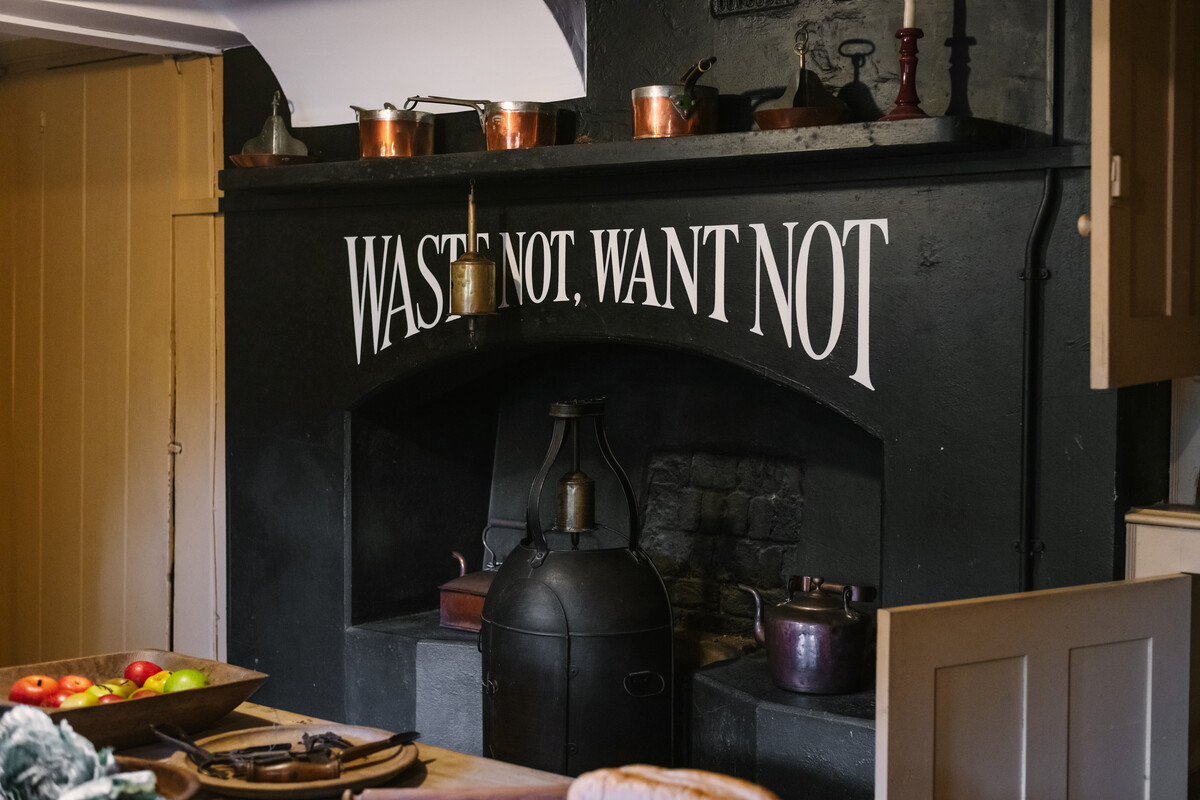Author: Lesley Morrill
Directions: Leave the kitchen and cross to the opposite door to enter the Butler’s Pantry.
Transcript
Here in the kitchen and servants’ hall, imagine if you will, the heat and sumptuous smells and sounds of cooking, wafting up Bells Passage.
In the kitchen, the cook is bent over at the oven basting the roast. On the hob there is steam pudding boiling – I want it to be treacle pudding with lashings of custard. And while Cook was busy, the scullery maid is scrubbing the table with sand, soap and hot water.
The copper pans that you see before you would have been tin lined so the copper did not seep into the food, with the exception of the jam pan as it was assumed that the sugar content in jams and jellies was enough to render the copper safe. These pans would be cleaned using sand, salt and vinegar, and the range was black leaded.
A day below stairs started at 5am for the maids cleaning the grates, whilst the upper servants, the butler and cook / housekeeper, would begin later, most likely at 7am. Days were long, often working until 10pm with only two hours off in the afternoon, half a day off per week, and one Sunday off per month.
The servants’ hall, the only place where it was accepted that men and women could socialise, there would be a buzz of chatter and busyness – the maids are ensuring their aprons are starched and hats are on straight, and the bows tied behind them are ‘just so’.
The footmen are being looked over by the butler, Maurice Elphick, before heading upstairs to serve the family. The range in here would have also been used to cook or to keep food hot for the servants to eat after the family have been served.
Did the Housemaid use her wages to visit the Duke of York’s cinema house, I wonder, which opened in September 1910? A ticket could cost from 3d (old money) to one shilling.
Ellen Stanford wanted to ensure that her staff remained well, so paid for them all to have inoculations against small pox. Combined with the fact that the staff had board and lodgings, with very nutritious meals every day, their wages – whilst low at £11 per annum and a beer allowance of £5 per year — went a great deal further than the equivalent today.
As you turn to leave the hustle and bustle of the servants’ domain, do not be surprised if you see the lady in black’s ghostly figure float down the stairs and into the servant’s hall. I believe this is the Housekeeper just checking that all remains well downstairs.

